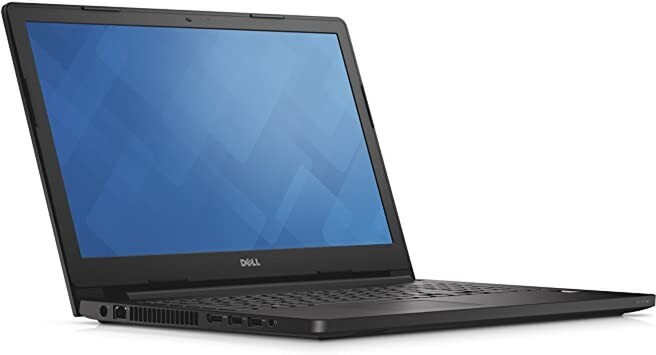Buying a new computer can be quite an investment. It's not something most people do often and it's chock-full of technical jargon. Here at Green Mouse we have minimum standards for the computers that we're prepared to sell and whether you want to buy from us or someone else, we're always happy to discuss the specifications of a prospective purchase. There are several reasons for this:
We want you to have a good experience with your new computer.
We can upgrade certain components to improve the functionality of a computer but we don't want to do so until after the warranty period has expired because any alterations would void the warranty.
There are some components that cannot be upgraded, and some types of computers which are not designed to be altered in any way.
Parts of a Computer
I'll start with a description of what the basic parts of a computer are so if you want to dive into the technical terms you can. I'll follow this with a quick reference list of what we would like to see these components at for a nice quick computer.
CPU - The Central Processing Unit
This is the electronic machinery that carries out the instructions you give to your computer. It is not upgradeable; the CPU that comes with your computer is what you'll have for the life of machine so you want a nice modern version. We like the i5 or i7 models (format example i7-1265U) or the Ryzen 5 or above (format example Ryzen 5 Pro 5650GE). If the CPU is an AMD A or E Series, run for the hills.
SSD - The Solid State Drive
Formerly the Hard Drive, almost all computers now use a Solid State Drive to store the files and applications on your computer. When I started about six years ago we were regularly upgrading HD to SSDs but now we're upgrading small SSDs to larger SSDs as they've increased in size and decreased in price. Most laptops come with a 256GB SSD but we are currently selling 1TB SSDs (so four times the storage space) for only $120. However, if most of your files live in the Cloud then 256GB might be sufficient. If you have a whole lot of photos and videos however, 512GB or 1TB may well be more appropriate.
RAM - The Random Access Memory
If your CPU is like your long-term memory, you could consider RAM to be your short-term memory. When your computer is asked to carry out a series of functions, the RAM temporality stores data for quick access so you don't have to wait for the relatively slower SSD to deliver the information. Most computers come with 8GB of RAM these days; 16GB is better but not necessary for most people. 16GB of RAM would be appropriate for serious gaming or for very demanding applications like CAD software used by designers or engineers.
The Operating System
This is generally Windows. Any new computer now should come with Windows 11 because Microsoft still has 2025 as their listed date for the end of support for Windows 10. What support means is the provision of updates for countering new security vulnerabilities as they're discovered. I should point out here that anything below Windows 10 is already well out of support; if you're still using a Windows 7 computer in 2023 you might as well leave your front door wide open with a big flashing sign saying 'thieves welcome here'. A new computer is the best time to move from Windows 10 to 11, and we highly recommend Windows 11 Pro rather than Windows 11 Home, just for the extra Cloud functionality.
For Laptops - Screen Size and Resolution
Laptops come in a range of sizes which are measured diagonally and provided in inches. 14" and 15.6" are fairly typical. A 14" is generally considered appropriate for a school laptop or for someone who carries their laptop with them frequently. They're small but light. 15.6" is quite standard for a laptop that will spend most of its life sitting on the same desk, but of course the size of the screen is down to personal preference. It's also common practice now to connect your laptop to a second, larger monitor, or even a dual screen setup, in which case screen size may be irrelevant. Resolution on the other hand, is important - you want your screen to look clear and crisp. We've noticed lately that resolution has been sacrificed by some brands in order to reduce the price. You want at least 1920x1080 PPI (or pixels per inch).
Other Considerations
If you're moving from one type of computer to another you might be expecting features that don't exist in the new one - for example PC towers don't generally connect to wifi (you need a dongle or to plug it in) and PCs and NUCs don't usually have built in speakers (you can buy external speakers).
Check the number of ports, especially in laptops. Make sure there are enough ports, and the right types of ports to accept everything you want to plug into it.
Laptops tend to have less SSD space as standard than PCs so if you're moving to a laptop and want to transfer your data, you might want to check how much data you have on your PC.
CD or DVD drives are not commonly found in any computers now. If you need one you can buy an external drive.
Quick Specs Reference List
CPU - i5 or above, or Ryzen 5 or above
SSD - at least 256GB, more is better
RAM - 8GB is perfectly fine for most
Operating System - Windows 11 (preferably Pro)
